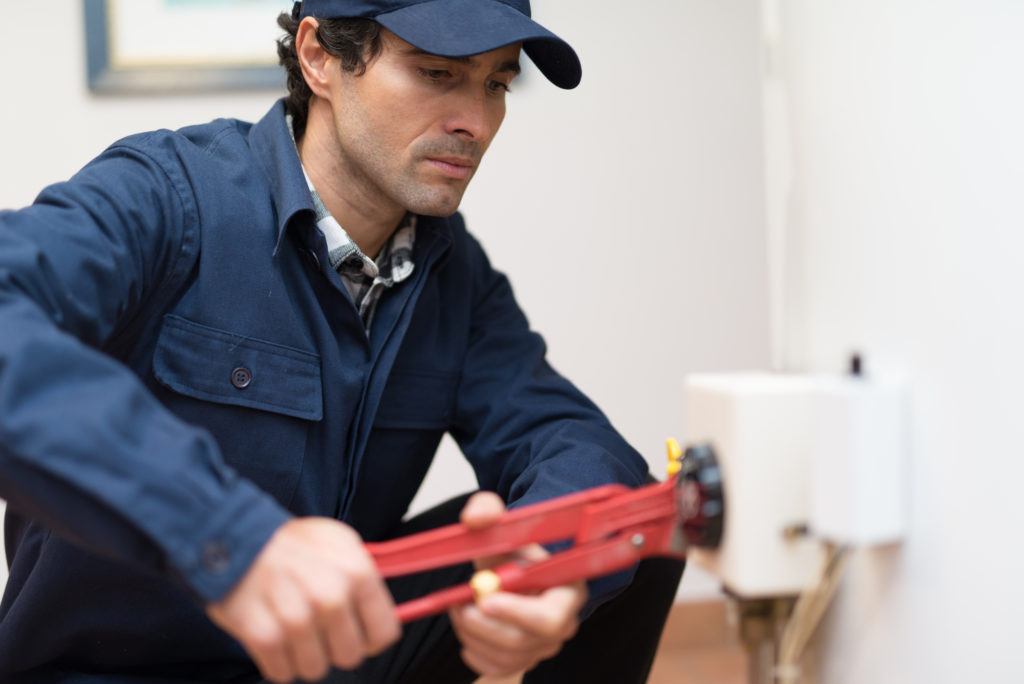Identifying And Solving Regular Water Heater Problems
Identifying And Solving Regular Water Heater Problems
Blog Article
Everyone may have their own unique idea in relation to Common Problems with Your Home Water Heater.

Envision beginning your day without your routine hot shower. That already establishes an inadequate tone for the remainder of your day.
Every residence requires a trustworthy hot water heater, but just a few know just how to manage one. One very easy method to keep your water heater in leading shape is to look for mistakes on a regular basis and repair them as soon as they appear.
Bear in mind to shut off your hot water heater before sniffing about for mistakes. These are the water heater faults you are more than likely to come across.
Water as well hot or as well chilly
Every water heater has a thermostat that figures out how warm the water obtains. If the water entering your home is as well hot despite establishing a convenient maximum temperature level, your thermostat might be defective.
On the other hand, too cold water may be due to a failed thermostat, a damaged circuit, or incorrect gas flow. For instance, if you utilize a gas water heater with a broken pilot burner, you would certainly get cold water, even if the thermostat remains in perfect problem. For electrical heating systems, a blown fuse might be the offender.
Inadequate warm water
Hot water heater been available in lots of sizes, depending on your hot water demands. If you run out of hot water prior to everyone has had a bath, your hot water heater is as well tiny for your family size. You need to think about installing a larger water heater tank or opting for a tankless hot water heater, which uses up less area and also is extra resilient.
Weird noises
There are at least five kinds of noises you can learn through a hot water heater, however one of the most usual analysis is that it's time for the water heater to retire.
To start with, you need to be familiar with the regular appears a hot water heater makes. An electric heating system might seem different from a gas-powered one.
Standing out or banging sounds generally imply there is a piece of sediment in your tanks, and it's time to clean it out. On the other hand, whistling or hissing sounds might just be your valves allowing some stress off.
Water leaks
Leaks could originate from pipes, water connections, shutoffs, or in the worst-case scenario, the tank itself. Gradually, water will rust the storage tank, and also discover its way out. If this occurs, you require to replace your water heater as soon as possible.
However, before your adjustment your entire container, be sure that all pipes are in area and that each shutoff functions flawlessly. If you still need help identifying a leakage, call your plumber.
Rust-colored water
Rust-colored water indicates one of your hot water heater elements is corroded. Maybe the anode rod, or the storage tank itself. Your plumber will have the ability to determine which it is.
Warm water
No matter exactly how high you established the thermostat, you won't obtain any warm water out of a heater well past its prime. A water heater's performance might decrease with time.
You will certainly additionally obtain lukewarm water if your pipelines have a cross link. This means that when you turn on a tap, hot water from the heating unit moves in along with normal, cold water. A cross link is simple to area. If your warm water faucets still run after shutting the water heater valves, you have a cross connection.
Discoloured Water
Corrosion is a significant source of filthy or discoloured water. Corrosion within the water container or a stopping working anode rod could create this discolouration. The anode rod protects the tank from rusting on the inside and also ought to be inspected annual. Without a rod or a properly functioning anode pole, the hot water promptly rusts inside the container. Contact an expert water heater service technician to establish if changing the anode rod will certainly fix the trouble; if not, replace your water heater.
Verdict
Preferably, your hot water heater can last 10 years before you need a modification. Nonetheless, after the 10-year mark, you might experience any one of these mistakes more consistently. Now, you should include a new hot water heater to your spending plan.
How To Troubleshoot 3 Common Water Heater Problems in Twin Cities
The Water Heater Is Leaking
A leaky cold water inlet valve A loose pipe fitting A leaky temperature and pressure relief valve A corroded anode rod A cracked tank Turn Off Your Water Heater:
Shut off your gas water heater by turning the gas valve on the unit to the “OFF” position. Shut off your electric water by switching its power off at your electrical panel. Look for a two-pole breaker labeled “water heater” and turn it to the “OFF” position. Move the ball valve connected to the water heater to be perpendicular to the piping at a 90° angle. Look for the Leak:
Depending on whether the water is coming from the tank's top or bottom, you’ll want to look for the leak in different locations.
If the leak comes from the top of the tank, carefully look for water escaping from the cold water inlet valve or loose pipe fittings. Rusted hot and cold water valves can have loose connections with the tank, with water leaking out of them.
https://mspplumbingheatingair.com/blog/how-to-troubleshoot-3-common-water-heater-problems
I ran across that review about Common Problems with Your Home Water Heater when looking around the search engines. Do you know another person who is in to the niche? Feel free to share it. I treasure reading our article about Common Problems with Tank Water Heaters.
Quality service? Ring us. Report this page